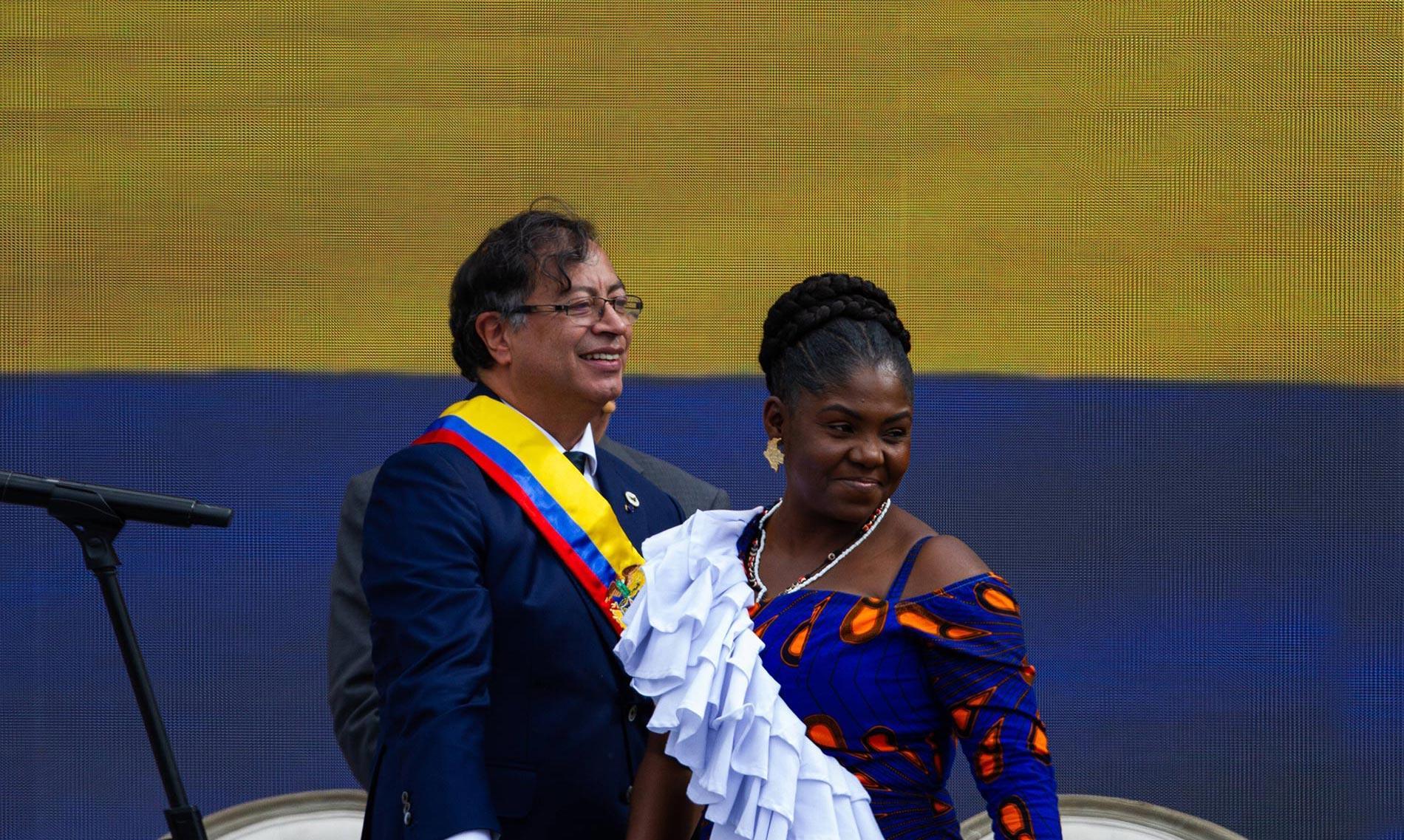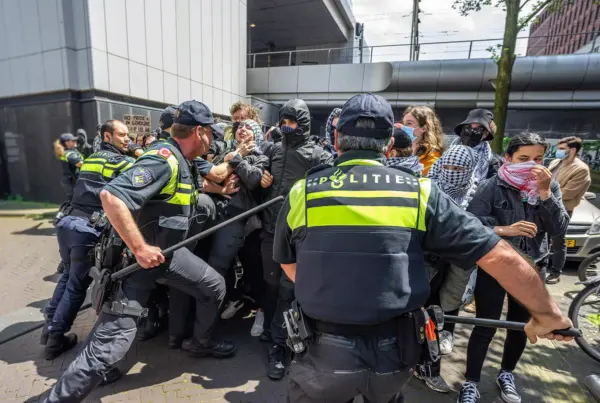The June 19th elections were a historic moment for Colombia. For the first time in its history the country would have a President that openly identified as a socialist. While the historic candidate was congratulated by the regional hegemon, Petro’s radical change for Colombia will face stark opposition from the country’s entrenched right-wing elite and the United States.
Rael Almonte Reyes, 3 October 2022
The June 19th elections were a historic moment for Colombia. For the first time in its history the country would have a President that openly identified as a socialist. Gustavo Petro and his Pacto Historico beat center-right “anti-establishment” candidate Rodolfo Hernandez. Petro’s victory is historic owing to Colombia’s being one of the pillars of reactionary politics in Latin America and the Caribbean, and to the country’s role as one of the stewards of the US hegemony in the region.
While the United States has openly congratulated President Petro with platitudes offering collaboration on regional issues, Washington’s interests and policies are in direct contrast with President Petro’s core campaign promises.
President Petro campaigned on a radical change from Colombia’s decades of right-wing governance. In sharp contrast to the economic laissez faire and social conservatism of Uribismo, the ideology of the Colombian right wing, Petro promises to bring about a redistribution of the country’s wealth, overhaul policing in the country, and transition the country from its reliance of extractive resources such as oil and coal. This left-wing agenda not only leads to hostility towards the President from Colombia’s conservative elites, but also causes concern in Washington D.C.
Some of the less controversial policies are the planned police reforms and the end of the “War on Drugs” in Colombia. This comes as a result of the 2021 Colombia protests which began as protests of tax reforms but soon transformed into a movement against police brutality. Police conduct in those protests resulted in over 2000 instances of police brutality and over 200 people reported missing. A general police reform is perhaps unlikely to get pushback from the United States under the Biden administration, but plans to offer general amnesties and renegotiate US-Colombia extradition treaties are likely to face some heavy criticism.
Perhaps more controversial for the United States is Petro’s plans for the Colombian economy. The purported plan is to wean Colombia away from reliance on extractive exports, such as oil and coal, and transition towards a more green, renewable economy. This, and the ambitious tax reform plan, will anger the traditional elite which greatly benefits from extractive industries and are steadfast US allies with close ties to the White House. Senator Maria Fernanda Cabal of the right-wing opposition is calling on the Colombian military to join a “crusade” against the government of Gustavo Petro.
The last sticking point, but perhaps the most consequential, is the Petro government’s re-engagement with Venezuela. Colombia has traditionally been in the vanguard of American hegemony in Latin America. Because of this relationship, Colombia was one of the first countries to cut relations with Venezuela when the Venezuelan conflict erupted and has been one of the most bellicose critics of Maduro’s government in Venezuela. Petro’s nascent government has taken a totally different approach: peace. One of his first acts upon taking office was to re-establish relations with its sister republic. While the United States is currently in a “honeymoon phase” with Venezuela because it needs Venezuelan petroleum to replace Russian oil, this is unlikely to last long.
These uniquely different policies put the United States and Petro’s nascent government on a potential collision course which, as students of US Cold War politics in the region can attest, will likely not end in peace and reconciliation. Although this is very concerning, it is important to note that Gustavo Petro faces an immensely divided congress, which is likely to hamper some of his most ambitious plans. Nevertheless, as his policies are extremely popular and he is a capable politician, there is a possibility that these reforms will be approved. But they will have to overcome resistance from the traditional conservative elite and a strong US response. Ultimately, the effort which will likely face most resistance is the re-negotiation of the U.S-Colombia Free Trade Agreement, which would have to be approved by the US Senate.
Regardless of whether or not he can navigate the minefield of the Colombian Congress, Gustavo Petro faces a difficult path to legislating policies to achieve a more equitable Colombia.
Picture: 7 August 2022, Bogota, Cundinamarca, Colombia: Colombian president Gustavo Petro (Left) and Vice-president Francia Marquez (Right) during the inauguration event of Colombia s first left-wing president Gustavo Petro inauguration event. © IMAGO / ZUMA Wire
Other Articles Which Might Interest You
Petro-Diplomacy: Oil Trumps Democracy and Human Rights – Again







